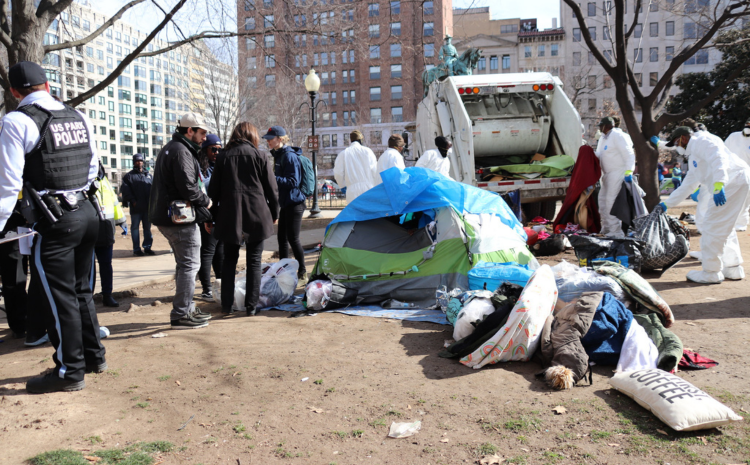
A study published last month in the Journal of the American Medical Association shows encampment sweeps, bans, move-along orders and cleanups that forcibly relocate individuals away from essential services will lead to substantial increases in overdose deaths, hospitalizations and life-threatening infections, plus many other detrimental impacts.
The study was authored by a multidisciplinary group of researchers led by Josh Barocas, MD, associate professor at the University of Colorado Anschutz Medical Campus, in coordination with NHCHC, the Centers for Disease Control and Prevention (CDC) and the CDC Foundation.
The researchers developed a simulation model projecting the long-term health effects of involuntary displacement of people experiencing homelessness who inject drugs using data from 23 U.S. cities. They used city- and national-level data to closely model what the population looks like in real life, including their overdose risk and mortality. They then modeled two scenarios over a 10-year time period: no continual displacement and continual involuntary displacement of this population.
The results were clear: Involuntary displacement causes people to be disconnected from health care services and increases their risk of overdose and death.
Photo credit: Elvert Barnes via Flickr

